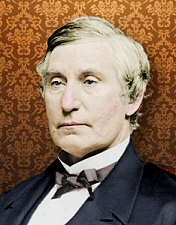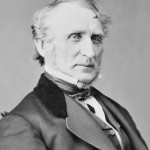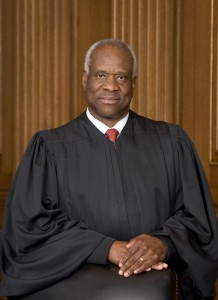 The Supreme Court deserves the respect it earns. When it fails to enforce the Constitution as it was written its credibility is strained. Regarding the Fourteenth Amendment’s Privileges or Immunities Clause, it has been wrong for nearly 150 years.
The Supreme Court deserves the respect it earns. When it fails to enforce the Constitution as it was written its credibility is strained. Regarding the Fourteenth Amendment’s Privileges or Immunities Clause, it has been wrong for nearly 150 years.
The Bill of Rights was ratified in 1791 in response to complaints that the original Constitution had few protections for citizen liberty from interference by the new federal government. When the Bill of Rights was adopted, its restrictions on government interference with freedom applied only to the federal government. There was nothing in the national Constitution to prevent states from establishing a religion or with a citizen’s speech. The federal government had no power to enforce the Bill of Rights against the states.
There were a few restrictions on state governments in the Constitution. These were found principally in Article I, Section 10. Section 10 mainly limited certain government functions in dealing with foreign governments, coining money and imposing certain types of taxes. There were a few protections for citizens in Section 10. A state could not “pass any Bill of Attainder[1], ex post facto Law[2], or Law impairing the Obligation of Contracts[3]”.
There is one other restriction on states in dealing with citizens in the original Constitution. This is the Privileges AND Immunities Clause (also known as the Comity Clause) of Article IV, Section 2:
“The Citizens of each State shall be entitled to all Privileges and Immunities of Citizens in the several States. “
The essence of the Privileges AND Immunities Clause is that a state must treat citizens of other states the same as it treats its own citizens. The Article I and IV provisions were the only original constitutional provisions providing protections for citizens from state governments. For protection from state government interference with their rights, citizens needed to look to state constitutions.
Following the Civil War, the Thirteenth Amendment abolished slavery. The Thirteenth Amendment did nothing to address the citizenship status of former slaves and said nothing about providing them the liberty protections that existed in the state constitutions. The national government had no authority to ensure that newly freed slaves would enjoy the protections of the Bill of Rights.
For the US Congress to have such power, another constitutional amendment was necessary. The Fourteenth Amendment was adopted to address several postwar problems. The Amendment would clear up the citizenship status of former slaves and give Congress and federal courts power to require states to extend the protections of the Bill of Rights to the newly freed slaves. The Fourteenth Amendment forever altered the balance between the states and federal government established in the original Constitution.
The Privileges OR Immunities Clause
The Fourteenth Amendment contains a clause much like the Comity Clause, but the intent is much different and it operates as a specific restriction upon state governments:
“No State shall make or enforce any law which shall abridge the privileges or immunities of citizens of the United States…”
After months of political debate, on June 18, 1866, the 39th Congress sent the Fourteenth Amendment to the states for ratification. From the congressional debate, the intent of the Privileges or Immunities Clause was to require the states to protect rights that under the original Constitution the federal government had no power to enforce against the states.
The clarity comes from the man who introduced the Fourteenth Amendment into the US Senate, Senator Jacob Howard of Michigan:
‘The great object of the first section of this amendment is, therefore, to restrain the power of the States and compel them at all times to respect these great fundamental guarantees.”[4]
 The Fourteenth Amendment had been introduced and shepherded through Congress by Congressman John Bingham. It had gone through several drafts, but Bingham, in his speeches preceding, during, and after the Amendment’s ratification, consistently and repeatedly stated that the new Amendment’s purpose was to enforce the Bill of Rights against the states. This is clear, yet it seems the Supreme Court has been befuddled on this point for almost 150 years.[5]
The Fourteenth Amendment had been introduced and shepherded through Congress by Congressman John Bingham. It had gone through several drafts, but Bingham, in his speeches preceding, during, and after the Amendment’s ratification, consistently and repeatedly stated that the new Amendment’s purpose was to enforce the Bill of Rights against the states. This is clear, yet it seems the Supreme Court has been befuddled on this point for almost 150 years.[5]
When the Supreme Court had its first real chance to interpret the Privileges or Immunities Clause, it did great damage to the Fourteenth Amendment, and to the country, from which we have yet to recover. In the Slaughterhouse Cases, the Supreme Court limited the Privileges or Immunities Clause. The Court said, that all the clause did was extend the Comity Clause of Article IV and give Congress the power to enforce that clause.[6] The Privileges or Immunities Clause has been a dead letter in the Constitution since. The Clause Intended to Protect the Great Rights of Man has Protected Nothing.
Recent Hope for the Privileges or Immunities Clause
 Supreme Court Justice Clarence Thomas agreed with the Court’s decision in McDonald v. Chicago that the Second Amendment protects the right to keep and bear arms from interference by law of the States. Justice Thomas agreed with the outcome, but he had different reasons. He did so because of the 14th Amendment’s Privileges or Immunities clause. In short, Justice Thomas applied the restrictions of the Second Amendment to the states because:
Supreme Court Justice Clarence Thomas agreed with the Court’s decision in McDonald v. Chicago that the Second Amendment protects the right to keep and bear arms from interference by law of the States. Justice Thomas agreed with the outcome, but he had different reasons. He did so because of the 14th Amendment’s Privileges or Immunities clause. In short, Justice Thomas applied the restrictions of the Second Amendment to the states because:
“… the right to keep and bear arms is a privilege of American citizenship that applies to the States through the Fourteenth Amendment’s Privileges or Immunities Clause.”
Professors Lash and Cherninsky and Justice Thomas make it clear that the Privileges or Immunities Clause was intended to enforce the Bill of Rights against the states, rather than the convoluted path the Court has taken with a concept nearly no one understands: “substantive due process”. The substantive due process approach has left out vital protections from the Bill of Rights enforceable against the state, including the Seventh Amendment’s right to a jury in civil cases and the Eighth Amendment’s right to a grand jury finding before being charged with a crime.
The Supreme Court makes mistakes, and often refuses to correct them. With the best of luck Justice Thomas will nudge them in the right direction.
_______________________________________________________________________________________________________
[1] A Bill of Attainder is a law passed by the legislature that applies to and generally punishes a specific person, rather than a law that applies to the entire community.
[2] An ex post facto law applies a criminal penalty to conduct after the act was committed. The state cannot punish someone for a criminal act, unless the law was in place at the time the act was done.
[3] A state cannot pass a law that says someone does not have to pay a bill that was the result of a legitimate contract.
[4] Senator Howard had earlier in this speech discussed the Bill of Rights and the Privileges and Immunities Clause of Article IV. The rights referred to by Senator Howard included the rights listed in the first eight Amendments, as well as the rights of visiting citizens protected under Article IV’s Comity Clause.
[5] For those wishing to study the meaning of the Fourteenth Amendment, as understood by both the members of the 39th Congress that proposed it, and the American public, for whom the proposed Amendment was a major issue in the 1866 elections, the three part series by Professor Kurt Lash, The Origins of the Privileges or Immunities Clause, provides great insight. Links to Professor Lash’s articles: Part I, Part II and Part III.
[6] The Slaughterhouse Cases were not the only mistakes made by the Supreme Court to damage the Fourteenth Amendment. See Professor Cherninsky’s article: The Supreme Court and the Fourteenth Amendment: The Unfulfilled Promise.






[…] “Senator Jacob Howard, the author of the citizenship clause of the Fourteenth Amendment – he spoke – he told us what he meant. He defined who would fall within the ‘jurisdiction of the United States.’ Ready? […]